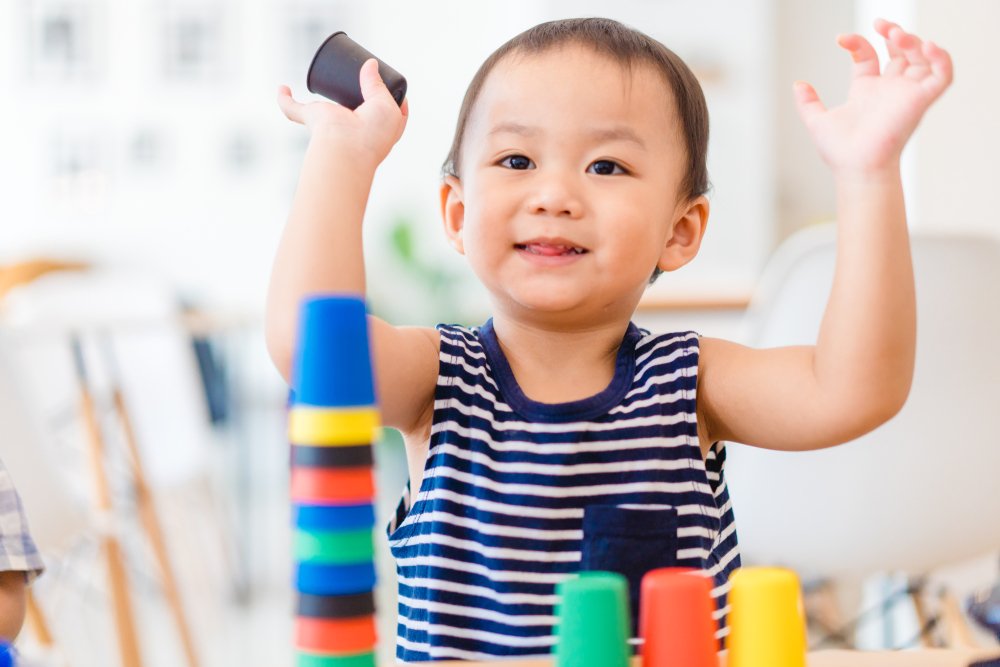Key points:
- Early mathematical concepts in children are developed through their routines, experiences, and interactions with their environment and caregivers.
- Children’s number sense develops in stages, starting with an understanding that numbers represent a certain amount and then progressing to counting with objects and words.
- Parents can support their child’s math development by playing games of sequencing and pattern recognition, using number language in everyday activities, and counting objects and toys together.
- Developing early math skills has long-term benefits for a child’s future academic skills and problem-solving abilities.
As we stated in the first part of this article, even though your little one was born with a basic mathematical understanding, you and their environment have a very important role to play by contributing to the further development of mathematical skills.
These concepts are developed through the routines, experiences, and interactions you have with them each day. Being aware of these early mathematical concepts helps you to be more intentional when you support them and will also impact their future academic skills. You are making sure they’ll be ready for school!
Near their second birthday, you might notice new behaviors in your child. They will probably be able to solve simple puzzles and their number sense will start to develop. What does this mean? They now understand that numbers represent a certain amount.
Number sense also develops in stages. At first, they’ll pay attention when you count out loud. When you do so, you help them notice the relation between the objects you are counting and the number that labels that amount.
By the time they start relating the concept of amount to objects, they will have developed enough language skills to produce a few words. They will start using concepts like “some” and “more”. Have you witnessed this yet? Now, if they want more food they don’t cry, they ask “More!”.
A little bit after this, you might start counting together! You are no longer doing it by yourself, now they have joined in the fun! They still need your support, so practice this often. By doing so, you’ll help them acquire the counting ability, while fostering their independence abilities. One day, they’ll be able to do it by themselves.
Counting is a huge milestone! It demonstrates the comprehension of number sense and it means your little one is also developing their problem-solving skills. Depending on their environment, they’ll develop different ways of thinking. See? You use more math than you realize!
How can you help your little one during this stage?
- You can play games of sequencing and pattern recognition, like clapping and repeating the same rhythm.
- You can also learn some nursery rhymes that will foster their sequential memory and attention. If you use a rhyme that has numbers in it, like “Little piggy”, even better!
- Use number language to count their toes and fingers, or even how many kisses you give each other throughout the day!
- During lunchtime, you can count the food together. “You have one cracker and two slices of cheese”.
- While playing with toys, you can also incorporate numbers. Whether you’re playing with blocks, cars, or LEGOs, count as much as you can.
Whole Child Parenting by The Whole Child Parenting Program was consulted.








